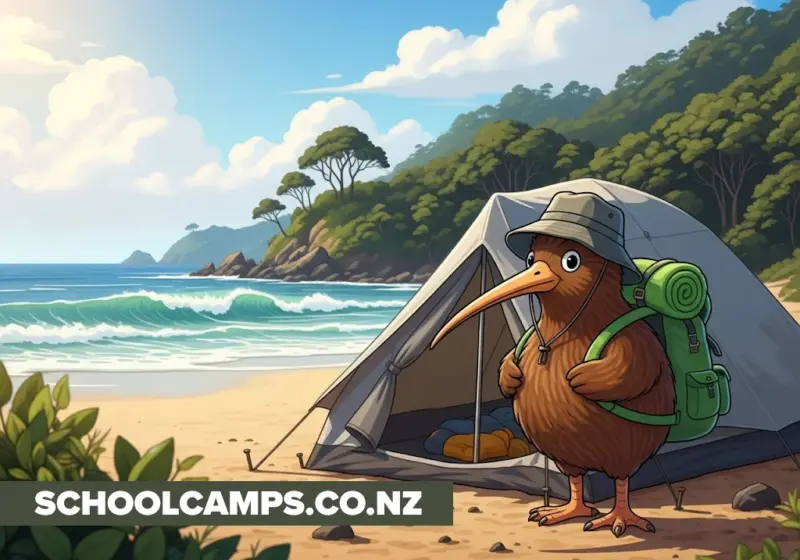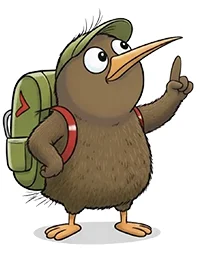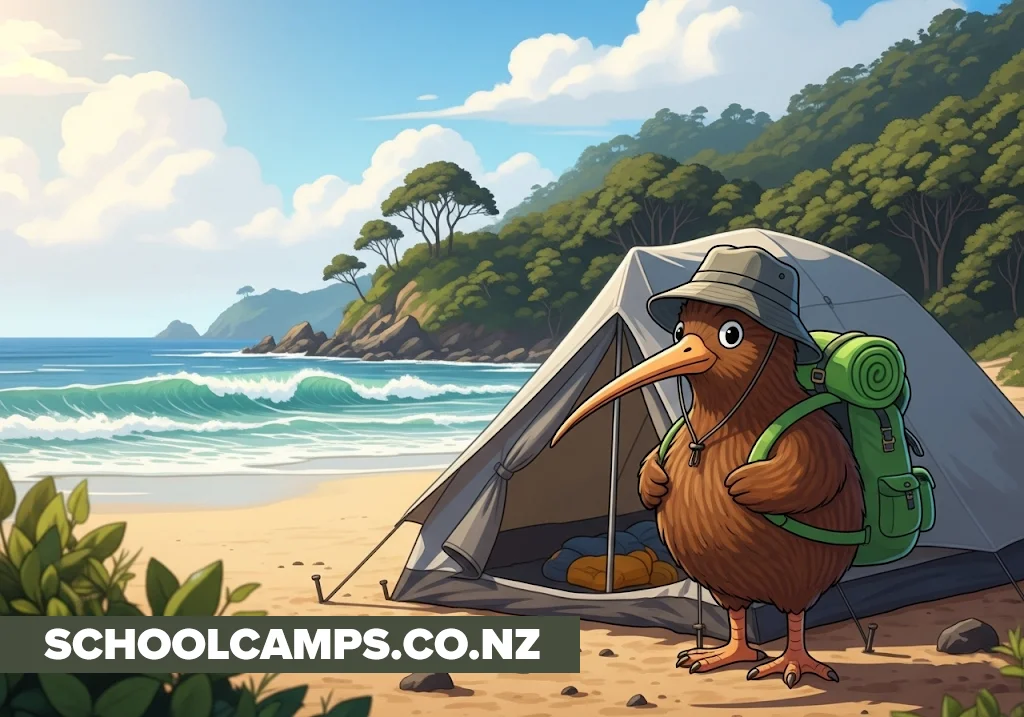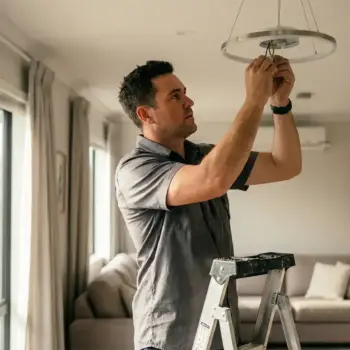 Having grown up in Northland and now raising kids here too, we’ve watched countless school groups discover what makes this region so special for outdoor education. With its mix of golden beaches, native bush, and welcoming communities, it’s no surprise that schools from across New Zealand choose Northland as their go-to destination for camps. A school camp in Northland offers more than just a break from the classroom. It gives students the chance to challenge themselves, build confidence, and discover the unique environment and culture of the Far North.
Having grown up in Northland and now raising kids here too, we’ve watched countless school groups discover what makes this region so special for outdoor education. With its mix of golden beaches, native bush, and welcoming communities, it’s no surprise that schools from across New Zealand choose Northland as their go-to destination for camps. A school camp in Northland offers more than just a break from the classroom. It gives students the chance to challenge themselves, build confidence, and discover the unique environment and culture of the Far North.
Why Choose Northland for School Camps?
What makes Northland so great for school camps? It’s got everything – beaches, bush, and farms all within easy reach. The weather here is pretty forgiving too – warm summers and mild spring/autumn weather mean you can plan outdoor activities with confidence. Whether it’s water sports, bushcraft, or exploring local history, there are natural settings to suit almost any programme.
Camps in Northland also provide a strong cultural dimension. Many locations are close to sites of historical and Māori significance, allowing schools to combine outdoor adventure with meaningful cultural learning. That’s why so many schools keep coming back to Northland – you get the perfect mix of adventure, learning, and good old-fashioned fun.
What Types of Camps Are Available?
So what kind of camps are we talking about? You’ve got plenty of options depending on what your group needs. The classic option is bunkhouse-style camps – think dormitories, big dining halls, and communal spaces. Perfect if you’re bringing the whole year level or even the entire school. These camps often sit in scenic coastal or bush locations, giving students plenty of space to enjoy outdoor activities.
Outdoor education centres offer structured programmes led by experienced instructors. These centres are designed to challenge students with activities such as high ropes, kayaking, and team-building exercises, while also focusing on safety and learning outcomes.
For something different, there are also specialist camps that focus on a particular theme. Some are farm-based, giving students hands-on experiences with animals and rural life, while others centre on water sports, surfing, or environmental learning. This variety means schools can find a camp that aligns with their goals, whether that’s building resilience, teaching practical skills, or encouraging leadership.
What Can Students Do at Northland Camps?
School camps in Northland give students the chance to step out of the classroom and into experiences that challenge, inspire, and connect them with the outdoors. Activities vary from camp to camp, but common options include:
- Outdoor adventure – kayaking, abseiling, tramping, mountain biking, and confidence courses that build teamwork and resilience.
- Water-based learning – surfing, snorkelling, or exploring the coastline through guided marine activities.
- Environmental education – bush walks, wildlife encounters, and conservation projects that encourage respect for the natural world.
- Team-building – group challenges, problem-solving games, and leadership activities that help students work together.
- Cultural learning – opportunities to engage with Māori history, traditions, and the stories that shape Northland.
Sure, the kids have a blast, but they also come home more confident, better at working as a team, and with a real appreciation for what makes Northland special.
What Do Students Actually Get Out of It?
Taking students on camp in Northland offers more than just a change of scenery. The mix of activities, environments, and cultural experiences provides real value for both personal and educational growth. Key benefits include:
- Building resilience and confidence – tackling new challenges helps students push past comfort zones.
- Encouraging teamwork – group activities develop cooperation, trust, and leadership.
- Learning through experience – practical, hands-on activities reinforce lessons in science, history, and the environment.
- Strengthening connections to place – students gain an appreciation for Northland’s natural beauty and cultural heritage.
- Supporting wellbeing – time outdoors promotes physical activity, problem-solving, and a sense of achievement.
Where Are the Best Camps in Northland?
Whangārei & Whangārei Heads
This area combines safe swimming beaches, harbour access, and nearby bush reserves. It’s a popular choice for schools that want a mix of water-based activities and tramping, all within easy reach of Whangārei city.
- Marsden Bay Christian Camp
- Tangihua Lions Lodge
- Holyground Parua Bay Christian Camp
- Manaia Baptist Camp
- Pātaua Outdoor Education & Recreation Trust (POERT)
Tutukaka Coast
Famous for its surf beaches and gateway to the Poor Knights Islands, the Tutukaka Coast is ideal for marine and coastal education. Schools visiting here can mix surf lessons with snorkelling or simply enjoy the natural setting.
Bay of Islands & Far North
The Bay of Islands is known for its sheltered waters, maritime history, and cultural significance. It’s a region where schools can combine outdoor adventure with learning about early Aotearoa New Zealand history. Further north, more remote campgrounds offer an “off the grid” feel.
- Lonsdale Park Outdoor Education Camp
- Coopers Beach Christian Youth Camp
- Russell Orongo Bay Holiday Park
Rural Northland & Kaipara
Inland areas provide classic camp settings with bush, farmland, and wide open spaces. These are well suited for traditional school camp activities such as team challenges, bushcraft, and environmental learning.
Frequently Asked Questions
Q: What’s the best time of year for school camps in Northland?
A: Terms 1 and 4 offer the most reliable weather, with warmer temperatures and less rainfall.
Q: How far in advance should we book?
A: Popular camps book out 6-12 months ahead, especially for autumn and spring dates.
Q: How do we get to Northland camps from Auckland?
A: Most schools charter buses – expect a 3-4 hour journey to reach most Northland locations.
For more detailed answers about costs, packing lists, safety procedures, and what to expect, check out our comprehensive School Camp Guide for Parents.
Finding and Booking a Camp in Northland

Choosing the right camp comes down to what will best suit your students. Some schools are drawn to coastal settings with opportunities for water activities, while others prefer bush or rural camps where there’s room for tramping, team-building, and outdoor learning. Group size, transport, and facilities are all part of the decision-making process.
The Northland camps directory on SchoolCamps.co.nz is a useful place to explore what’s available across the region. With a wide range of campgrounds and venues listed, it’s an easy way to see the options and get in touch directly with camps that fit your plans. Whether you’re organising a short stay or a week-long programme, Northland has plenty of choices to help create a memorable camp experience for your students.



Leave a Reply
You must be logged in to post a comment.